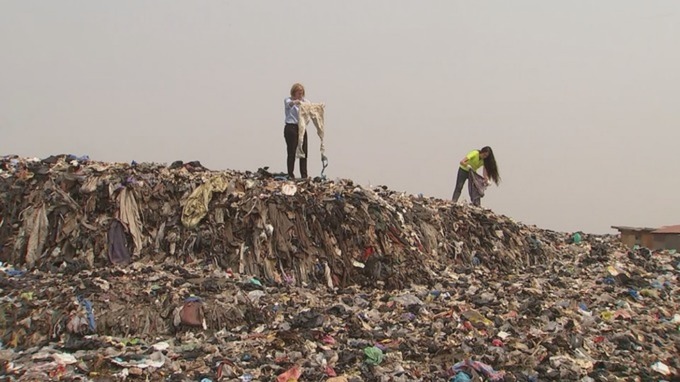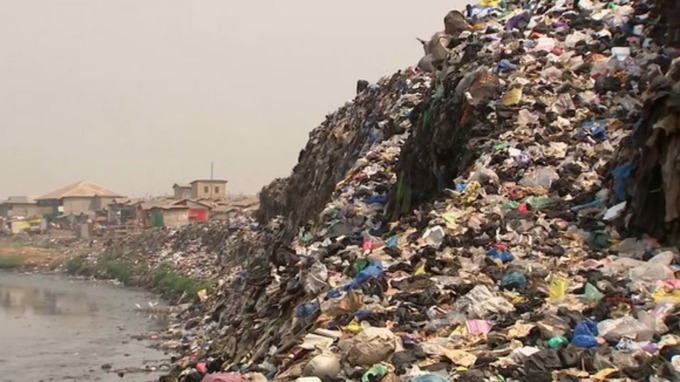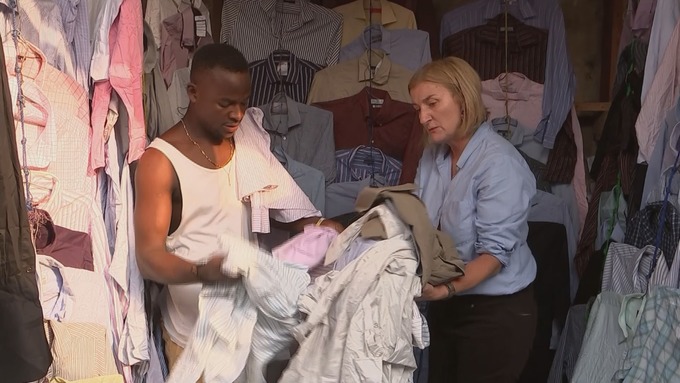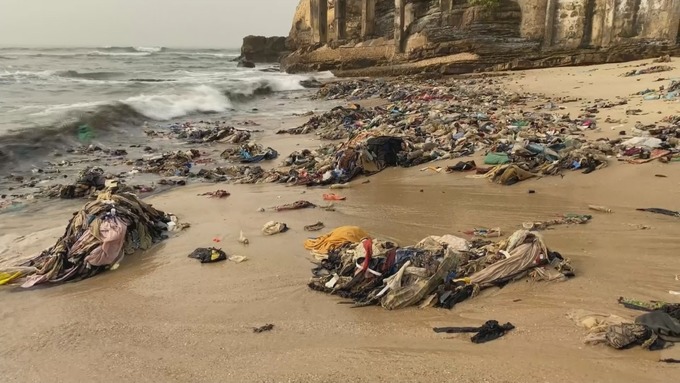
UK export of trash to Ghana creates 30-ft mountain of second-hand clothes in Accra
On the edges of the Korle Lagoon in Accra stands a mountain of trash that towers over a maze of kiosks. Some call it home, but the city authorities call it a slum.
A product of Ghana’s urban sprawl, Old Fadama assaults not only the nose, but it also does to the eye too, with tonnes of discarded clothes and plastics balling into a nasty refuse dump.
It’s a mountain that has been rising for over 40 years, as second cloth dealers in the Kantamanto Market—the hub of used clothes in Ghana—select the best from bales of used clothes and toss the chaff away.
The refuse dump at Fadama is the final resting place for used clothes that did not make it to Ghanaian homes. Interestingly, a stone’s throw away lies the world’s biggest electronic dumpsite- the Agbogbloshie electronic waste site—the most polluted place on earth, according to tonnes of research.
The emphasis on environmental protection and sustainable ways of discarding unusable products are the focus of many campaigns, including policies by the UN.
The United Nations passed the guidelines on to member states for implementation to achieve a safe ecology.
However, it seems the UK is transferring its problems and redirecting its waste to Ghana via the second-hand clothing market, as tonnes of poor-quality garments get shipped daily into Ghana, creating a herculean waste management problem—a struggle for local authorities.
“We are having serious challenges with textile waste that is coming from Europe and elsewhere but our headache is the full containers coming daily, and they are basically rubbish,” Director of Waste Management Department at the Accra Metropolitan Assembly (AMA), Solomon Noi, lamented.
The pollution has reached heightened levels as landfill sites become a disaster in waiting.
The pollution extends into the oceans, putting the survival of sea organisms, including fishes, at risk.

An investigation by UK’s ITV revealed that the problem is perverse and requires tougher actions by enforcement agencies in both countries. In 2019, clothes sent to Ghana from the UK totalled 63, 418,990kg which is more than double the figure recorded about a decade earlier.
Charities donated most of the clothes, but as much as 60% end up being sold as second-hand garments in Ghana. Even though some organisations sort out the poor ones to be trashed in the UK, others don’t and as much as one-third of the exports to Ghana are plain garbage.

In Ghana, Kantamanto is the largest second-hand clothing centre and one of the biggest in the world. Used clothing is referred to in local parlance, as ‘Obroni wa wu’, an Akan phrase, literally translated in English as ‘dead white man’. However, the used clothing is not from dead Caucasians but individuals donating to a good cause.
Over 15 million items arrive at the ports weekly and for bales ranging from 50-100kg, they are sold for about GHC 600, the equivalent of £80 and GHC 1,200 approximately £150 each, respectively.
Traders earnestly engage with second-hand clothing via agents who purchase from foreign contacts and shipped to clients in bales.
About 40% of the contents of the bales are poor-quality garments, which are of no use and end up at the landfill sites.
Accra’s outskirts of Old Fadama lies a 30-foot-mountain of a toxic clothing dump. 50 tonnes of daily garment trash end up there daily. Even though these clothes come from several foreign countries, the UK is the number one origin.
As ITN’s Penny Marshall and Liz Ricketts of The OR Foundation sifted through the pile, enough to cover half of a football park, they found several UK fashion brands including H&M, M&S, and Marks & Spencer. Other international brands include Nike, Gap and Adidas.

The tags are still attached to some clothes which reveal the cost they were supposed to have been sold by the charity organisations, some as low as £2.


